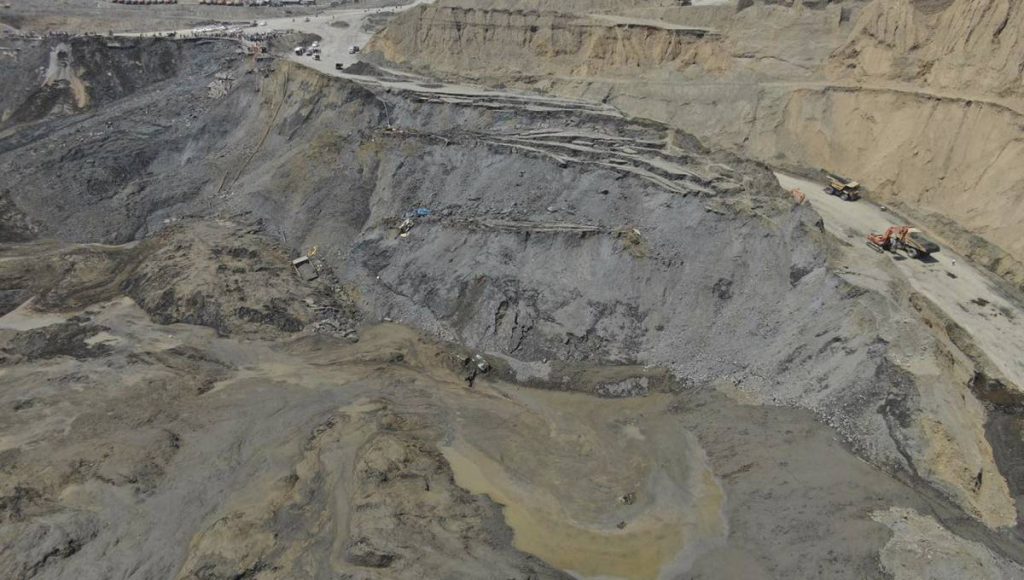Naypyitaw, Apr 24 (AP/UNB) — More than 50 people are believed to have died in a mudslide at a jade mining site in northern Myanmar, a lawmaker representing the area said Tuesday.
Tin Soe said three bodies have been recovered and 54 people remain missing after the accident Monday night in the Hpakant area of Kachin state.
“The rescue process will not be easy as they’re under the mud, not just ordinary soil. It is really difficult to get the bodies back,” he said.
The mud flowed down on the workers from a collapsed reservoir made from a disused mining pit to contain materials discarded from the mining process.
The landscape in the area is extremely uneven, with mountains of debris and valleys formed from abandoned mines.
The mud covered not only the workers but also mining equipment, including bulldozers and backhoes, from the Myanmar Thuya Co. and 9 Dragons Co.
Tin Soe said the missing were buried under mud up to 100 feet (30 meters) deep.
“There is no machine to pump out the mud,” he said by phone. “It could cost millions of dollars.”
Local officials did not answer phone calls seeking comment on the accident. Myanmar’s Information Ministry said on its Facebook page that rescue operations have been carried out since Tuesday morning by local authorities together with social welfare organizations.
A similar accident involving the release of a massive amount of mud occurred in March, damaging some equipment but causing no deaths.
Accidents involving heavy casualties in the jade mining area are not rare, but usually have a different cause.
They usually occur at the foot of giant mounds of discarded earth that has been mined in bulk by heavy machinery, with scavengers searching for scraps of jade at their base. The scavengers are usually itinerant workers from other areas who are not registered with local authorities, so the identities of victims, and even the death toll, often remain unknown.
Scavenging for jade remnants is dangerous and not well regulated. More than 100 people were killed in a single landslide in November 2015.
Hpakant, 950 kilometers (600 miles) north of Myanmar’s biggest city, Yangon, is the center of the world’s biggest and most lucrative jade mining industry.
According to Global Witness, a London-based group that investigates misuse of revenues from natural resources, the industry generated about $31 billion in 2014, with most of the wealth going to individuals and companies tied to Myanmar’s former military rulers.
Local activists said the profitability of jade mining led businesses and the government to neglect enforcing already very weak regulations in the industry.
The region is also enmeshed in an armed conflict between the government and ethnic rebels from the Kachin Independence Army.
“Many jade mining companies do not follow rules and regulations on where or how to dump waste piles,” Maw Htun Awng, a mining governance researcher, said after an accident last year that killed at least 15. “Then there are no actual mechanisms to watch if these companies are following these rules and that’s why this is part of the cumulative impact.”




